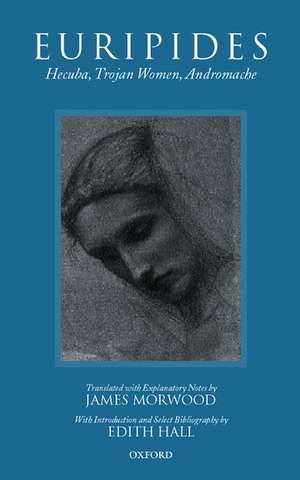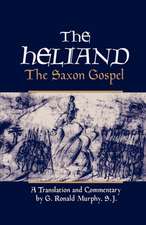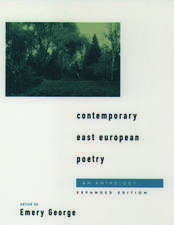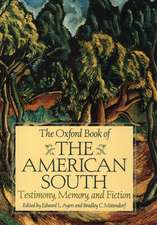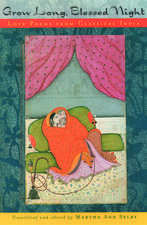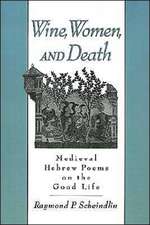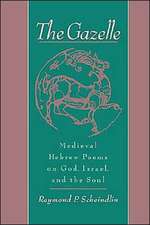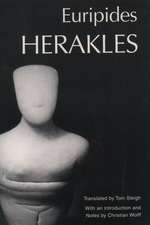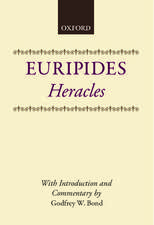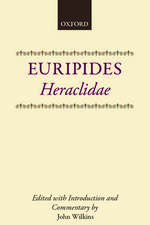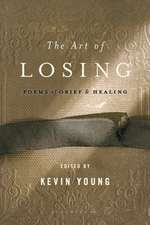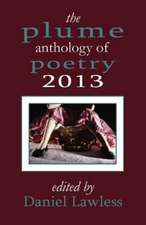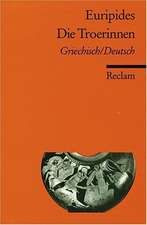Hecuba, Trojan Women, Andromache
Autor Euripides James Morwood Introducere de Edith Hallen Limba Engleză Hardback – 15 feb 2001
Preț: 1326.79 lei
Preț vechi: 2022.95 lei
-34% Nou
Puncte Express: 1990
Preț estimativ în valută:
253.91€ • 264.75$ • 211.02£
253.91€ • 264.75$ • 211.02£
Carte tipărită la comandă
Livrare economică 10-17 martie
Preluare comenzi: 021 569.72.76
Specificații
ISBN-13: 9780198150930
ISBN-10: 0198150938
Pagini: 216
Ilustrații: 1 map
Dimensiuni: 145 x 224 x 17 mm
Greutate: 0.39 kg
Editura: OUP OXFORD
Colecția OUP Oxford
Locul publicării:Oxford, United Kingdom
ISBN-10: 0198150938
Pagini: 216
Ilustrații: 1 map
Dimensiuni: 145 x 224 x 17 mm
Greutate: 0.39 kg
Editura: OUP OXFORD
Colecția OUP Oxford
Locul publicării:Oxford, United Kingdom
Recenzii
The translation will be helpful for those working with a Greek text, as Morwood provides accurate line numbering, and the explanatory notes at the end of the volume will be useful for those studying the text solely in translation, as they provide a more substantial and detailed commentary than is often the case in such volumes.
This volume provides the reader with a strong interpretative framework to accompany the translations.
The translation is clear and accessible, and the introduction is informative and useful as it covers a number of topics relevant to understanding Euripides as a playwright and the historical circumstances in which he wrote.
Morwood's versions make available, in all, eleven plays in a prose style that will appeal to readers looking for solidly dependable, dignified, and helpfully annotated renderings.
This volume provides the reader with a strong interpretative framework to accompany the translations.
The translation is clear and accessible, and the introduction is informative and useful as it covers a number of topics relevant to understanding Euripides as a playwright and the historical circumstances in which he wrote.
Morwood's versions make available, in all, eleven plays in a prose style that will appeal to readers looking for solidly dependable, dignified, and helpfully annotated renderings.
